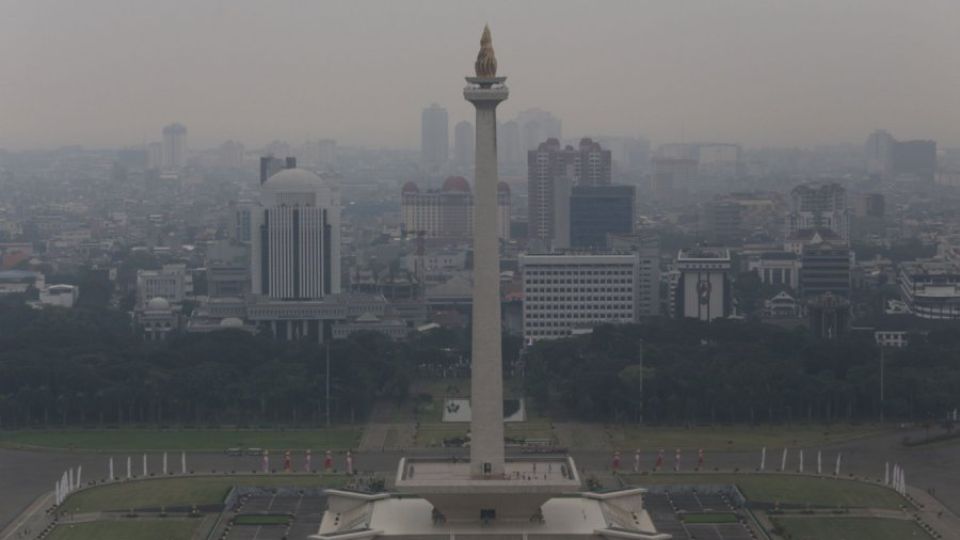August 21, 2023
JAKARTA – The Environment and Forestry Ministry has set up a task force to tackle the rising air pollution in the Greater Jakarta area, with a focus on law enforcement and monitoring potential pollutant sources.
Environmentalists are, however, unconvinced that the task force will produce significant results in reducing the pollution that has been choking the capital.
The ministry’s task force will focus on managing air pollution, which starts with identifying sources of pollutants in the Greater Jakarta area, said Environment and Forestry Minister Siti Nurbaya Bakar.
“Monitoring all sources of pollutants is important to improve air quality and to enforce disciplined measures in protecting the environment,” Siti said in a statement on Saturday.
The task force, led by the ministry’s law enforcement director general, will emphasize the enforcement of existing laws on polluting industries and individuals. Officials will inspect “stationary pollution sources” such as power plants and manufacturing industrial complexes.
If any business is found guilty of failing to control their emissions, the task force will impose administrative sanctions, criminally charge or file a civil lawsuit against the owners of the business.
The task force will also focus on other measures to prevent and diminish pollution, such as launching vehicle emission tests across Greater Jakarta, planting trees that can absorb the pollutants and cloud seeding to create rain and therefore clean the air, Siti said.
“It’s important for our ground team to start working on these steps,” the minister said.
Read also: Air pollution, nothing changes
The ministry was also tasked with coordinating efforts to curb air pollution with regional administrations in the Greater Jakarta area.
Long term measures needed
The ministry formed the task force following a meeting between ministries and regional administrations organized by Coordinating Maritime and Investment Minister Luhut Pandjaitan on Friday.
Luhut said efforts to curb Jakarta air pollution would focus on three areas: industry, energy generation and transportation.
On the industry and energy side, authorities will push heavy industry factories and coal-fired power plants to install scrubbers, devices that remove some pollutants from industrial exhaust streams. The senior minister also highlighted the early retirement of coal plants and carbon financing as other measures to curb the pollution.
Read also: Jakarta pollution blamed for respiratory problems
Authorities will also encourage people to use public transportation and require emissions tests for vehicle licensing. “We will also expedite the vehicle electrification process to reduce emissions,” Luhut said in a statement.
Jakarta has been among the most polluted cities in the world for the past several weeks, according to the Air Quality Index (AQI) ranking by Swiss air quality tech company IQAir.
The city consistently has “unhealthy” air according to the AQI, with high levels of PM2.5 pollutants. On Saturday, air monitor devices across the city detected 51 micrograms per cubic meter (µg/m3) of the fine airborne pollutants, higher than the daily 15 µg/m3 considered safe by the World Health Organization (WHO).
Studies show that high exposure to PM2.5 can cause various health problems, including irritation of the airways, aggravated asthma and premature death in people with health and lung disease. A study issued this year estimated that air pollution causes health problems for at least 12,000 people and killed 10,000 others, while the yearly cost of the health impacts from air pollution has reached almost US$3 billion.
Activists are skeptical that the ministry task force will provide a quick solution to the unending pollution problem.
Any government efforts to curb pollution will not be sufficient if the government still challenges air pollution lawsuits filed by citizens, said Bondan Andriyanu, a climate and energy campaigner from Greenpeace Indonesia.
Read also: Jakarta air pollution worsens, little progress after 2021 ruling
In 2021, the Central Jakarta District Court ruled in favor of a group of residents who sued the government for negligence in tackling air pollution. But the Environment and Forestry Ministry appealed the ruling to the higher courts, including the Supreme Court in January.
“The government should withdraw its appeal because it’s counter-productive to efforts to control the pollution. It also means that the government still denies the judge’s ruling [that they are negligent,” Bondan said.
Combating air pollution requires sustained long-term work, including a shift to renewable energies as electricity sources, higher quality fuels, promoting public transit and enforcing laws against polluters, said Ahmad Safruddin, the executive director of the Committee for the Phasing Out of Leaded Fuel (KPBB) environmental group.
“We can’t force ourselves to do 30 years’ worth of work in one day, hoping to see results in one to two weeks,” Ahmad said. “Maybe we can only rely on rain to solve the pollution [problem].” (kuk)


